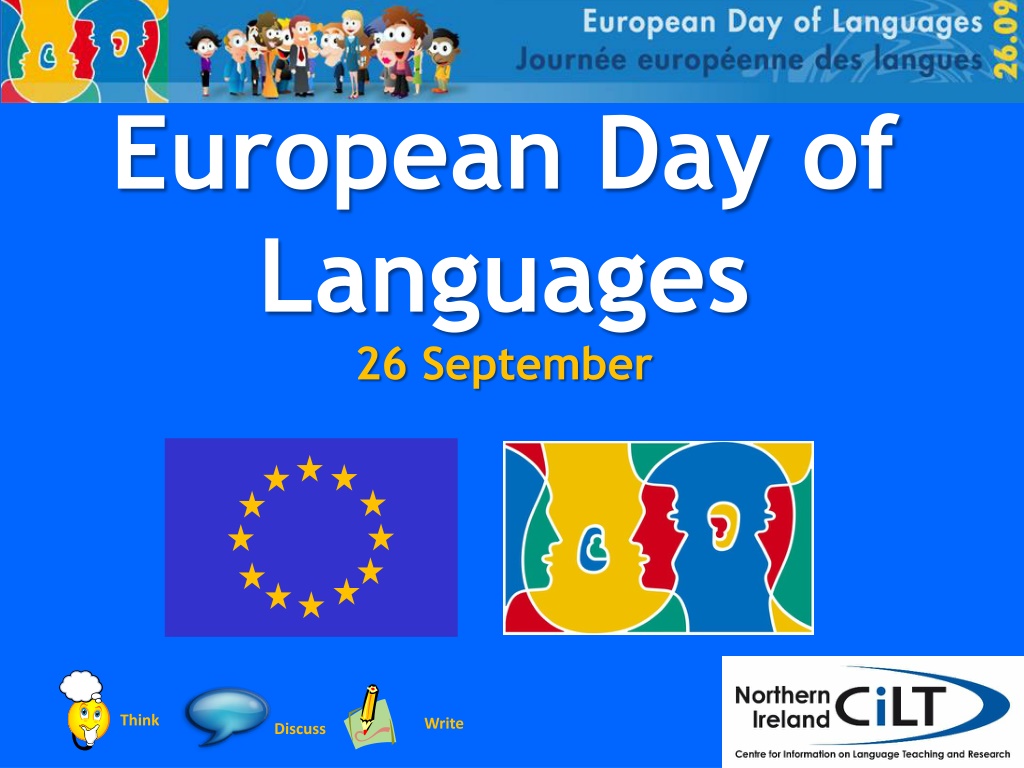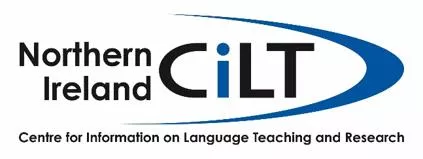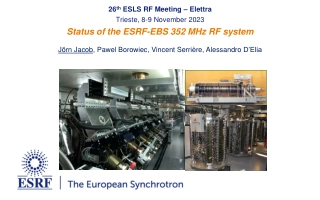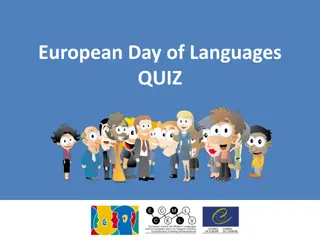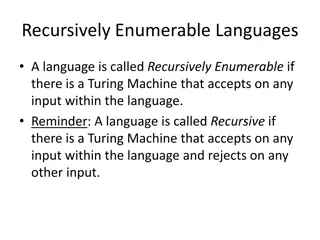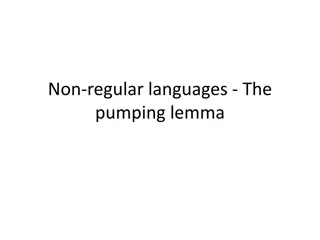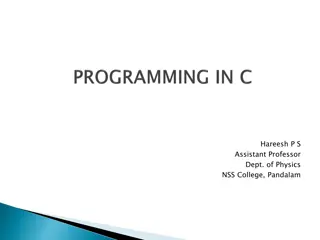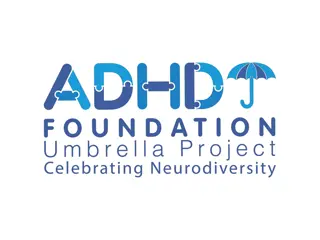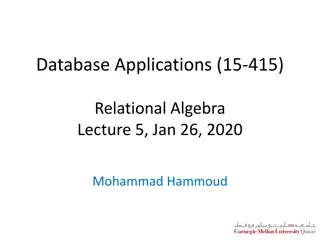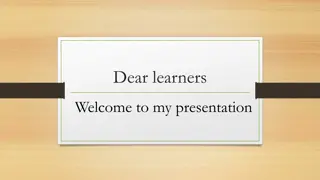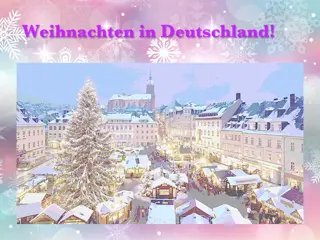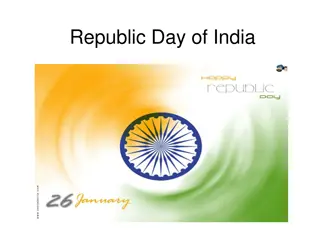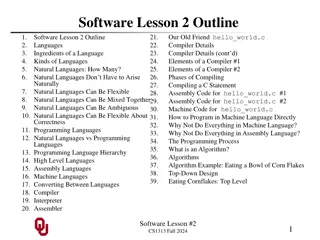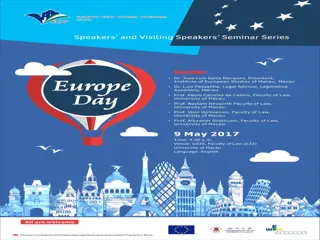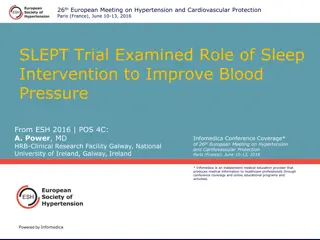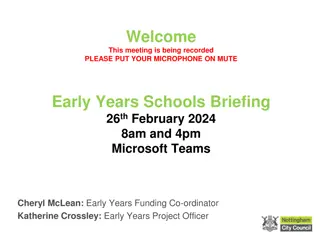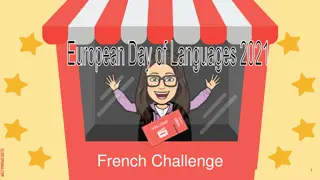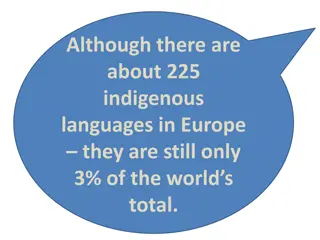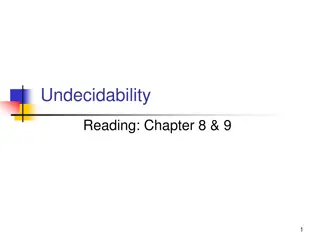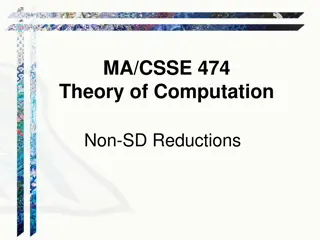Celebrating European Day of Languages on September 26th
European Day of Languages (EDL) is celebrated annually on September 26th to honor the linguistic diversity of Europe. Since 2001, this day focuses on the importance of language competence and lifelong learning. People worldwide organize events to promote language learning, engage in discussions, and celebrate the richness of languages. The European Union recognizes multiple official and co-official languages, emphasizing the significance of multilingualism in European society.
Download Presentation

Please find below an Image/Link to download the presentation.
The content on the website is provided AS IS for your information and personal use only. It may not be sold, licensed, or shared on other websites without obtaining consent from the author. Download presentation by click this link. If you encounter any issues during the download, it is possible that the publisher has removed the file from their server.
E N D
Presentation Transcript
European Day of Languages 26 September Think Write Discuss
History & Aims of EDL Since 2001, when the European Year of Languages was launched by the Council of Europe and the European Union, EDL has been celebrated around the world each year on the 26th September. It is a day to celebrate the rich diversity of languages spoken by the 800 million people who are now living in Europe and represented in the Council of Europe s 47 member states. On EDL you should reflect on the advantages of language competence and life-long language learning.
Celebrations for EDL Around the world and even in your own local community, people will be organising and running events to celebrate EDL People are encouraged to learn a new language, take part in games and events to celebrate language learning TV and radio programmes, talks and conferences will be dedicated to languages
Some facts about languages in our schools in N Ireland * 2014/15 NI Schools Census ** RM Education
Some interesting facts. Can you fill in the gaps? There are over 1 young people in N Ireland whose 1st language is not English!* 2 is the most widely spoken mother-tongue language amongst our new- comer young people, followed by Lithuanian and 3 !* There are 4 . official languages in the EU but over 5 .. European languages spoken and used every day. The very 1st official language policy identified Dutch, French, .. 6 ., and Italian as the official working languages of the EU. 7 languages, such as Catalan and 8 .., have gained a status as co- official languages of the European Union. There are around 9 minority and regional languages spoken in the European Union, as well as more than 10 migrant languages. The EU prioritises language learning and one of its policy objectives is that every European citizen should master 11. other languages in addition to 12 .. Polish 24 Regional 2 60 10,000 200 Portuguese Welsh 175 German their mother tongue * 2014/15 NI Schools Census
Some interesting facts. Can you fill in the gaps? There are over 1 young people in N Ireland whose 1st language is not English!* 2 is the most widely spoken mother-tongue language amongst our new- comer young people, followed by Lithuanian and 3 !* There are 4 . official languages in the EU but over 5 .. European languages spoken and used every day. The very 1st official language policy identified Dutch, French, .. 6 ., and Italian as the official working languages of the EU. 7 languages, such as Catalan and 8 .., have gained a status as co- official languages of the European Union. There are round 9 minority and regional languages spoken in the European Union, as well as more than 10 migrant languages. The EU prioritises language learning and one of its policy objectives is that every European citizen should master 11. other languages in addition to 12 .. 2 10,000 Polish Portuguese 24 200 German Regional Welsh 60 175 their mother tongue 24 Regional Polish 2 60 10,000 200 Portuguese Welsh 175 German their mother tongue * 2014/15 NI Schools Census
Do you know what these key linguistic terms mean? Monolingual Bilingual Multilingual/ Plurilingual Dialect Colloquial Linguistic Lexis Minority-language Migrant-language Eurobarometer Diversity Range of different things Speaking only 1 language Fluency in 2 languages Fluency in several languages Particular language of specific region or community Non-formal language used in familiar or ordinary conversation Linked to language Words and idioms that make up vocabulary in a language Language used by minority of people in a territory Language used people who have recently arrived in a territory Public-opinion survey of the European Commission
The following are names of EU member states in their own native tongue. Can you guess what they are? 1. Holland/Netherlands 2. Germany 3. Slovenia 4. Ireland 5. Finland 6. Estonia 7. Slovakia 8. Sweden 9. Turkey 10.Greece 1. Nederland 2. Deutschland 3. Slovenija 4. ire 5. Suomi 6. Eesti 7. Slovensko 8. Sverige 9. Magyarorsz g 10. (Ell da)
Video clip Hello. Talk to me! Listen and watch people saying Hello. Talk to me! in different languages. How many languages can you recognise?
Hello! What language is this? 1. Ciao 2. Hallo 3. Hej/Goddag 4. (geia sas) 5. Ol 6. (Assalam Aleykum) 7. Hujambo 8. Hel 9. Tere 10.Ahoj 1. Italian 2. Dutch/German/Afrikaans 3. Danish 4. Greek 5. Portuguese 6. Urdu 7. Swahili 8. Welsh 9. Estonian 10.Czech
Do you know which EU member states these flags belong to? 4 3 2 1 6 7 8 5 9 10
Do you know which EU member states these flags belong to? 4. Poland 3. Lithuania 2. Finland 1. Belgium 6. Bulgaria 7. Malta 8. Cyprus 5. Slovakia 9. Czech Republic 10. Hungary
Fact or fiction? Read the following statements about languages in the EU and decide if they are fact or fiction! 1. The national language of Austria is German 2. There are 2 official languages in Finland: Finnish and Swedish 3. There are 2 official languages in Belgium: Flemish and German 4. There are 2 official languages in Luxembourg : French and German 5. The main language spoken in Spain is Castilian 6. Arabic, Chinese and Hindi are the main non-European languages most widely used on European territory 7. In London around 200 languages are spoken 8. Most of the official EU languages are Indo-European 9. Russian is one of the official languages of the EU 10. English is spoken by more than half the entire population of the EU
Fact or fiction? Read the following statements about languages in the EU and decide if they are fact or fiction! Fact-But there are also many regional languages and minority languages 1. The national language of Austria is German 2. There are 2 official languages in Finland: Finnish and Swedish 3. There are 2 official languages in Belgium: French and German Fact Fiction- There are 3: French, German and Dutch. Flemish is also considered a regional language. 4. There are 2 official languages in Luxembourg: French and German True- Luxembourgish is also considered one of its regional languages 5. The most widely used language in Spain is Castilian 6. Arabic, Chinese and Hindi are the main non-European languages most widely used on European territory 7. In London around 200 languages are spoken 8. Most of the official EU languages are Indo-European- Fact Fact Fact Fiction (Around 300 languages are spoken) Fact- Meaning relating to the family of languages spoken over the greater part of Europe and Asia 9. Russian is one of the official languages of the EU Fiction-but it is the sixth most common language, after English, French, German, Spanish, and Italian. 10. English is spoken by more than half the entire population of the EU Fact-but German has the most native speakers
Some inspirational quotes about language learning Which is your favourite? Do you have your own? If you talk to a man in a language he understands, that goes to his head. If you talk to a man in his own language, that goes to his heart Nelson Mandela He who knows no foreign language knows nothing of his own Ludwig von Goethe A different language is a different vision of life Federico Fellini Writing cannot express all words, words cannot encompass all ideas Confucius Language is the laughter of the soul Pablo Neruda To have a 2nd language is to possess a 2ndsoul Charlemagne
Now create your own word cloud about languages!
